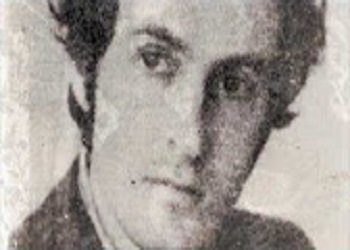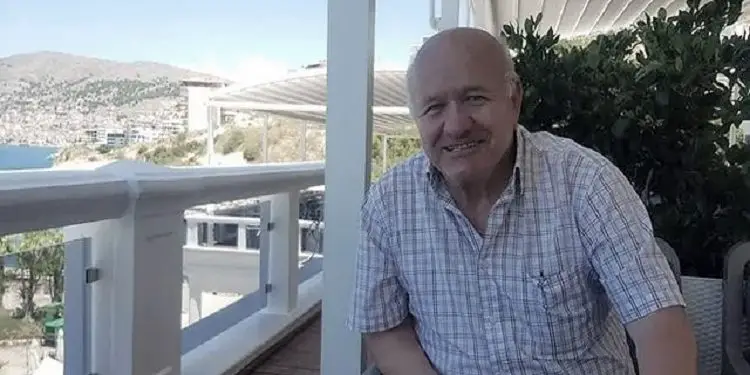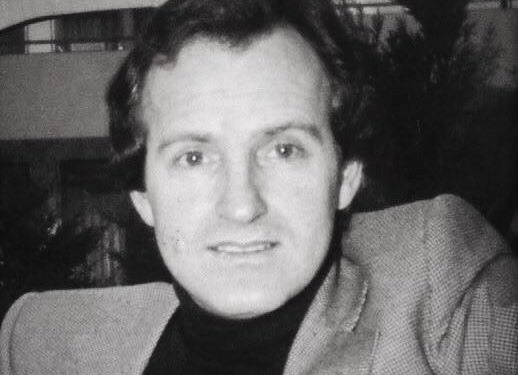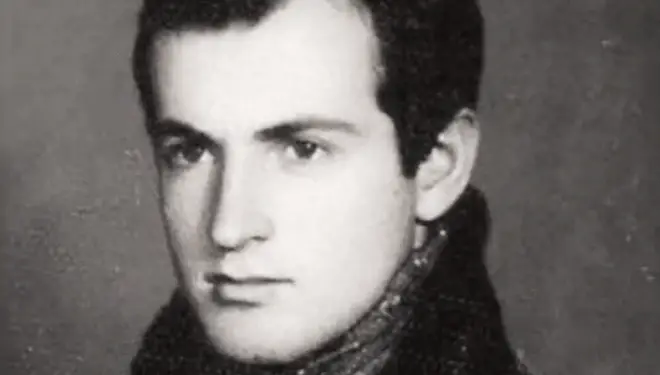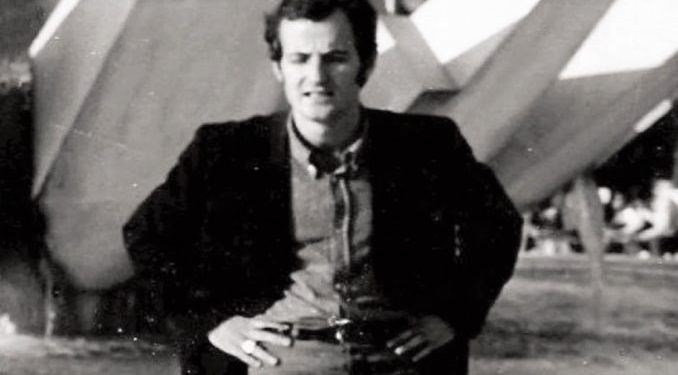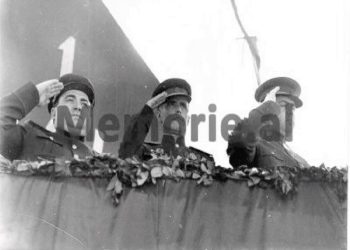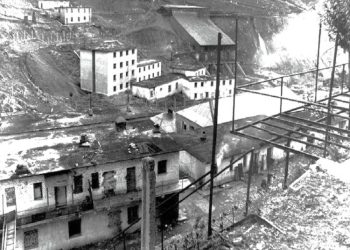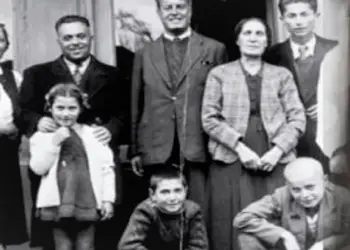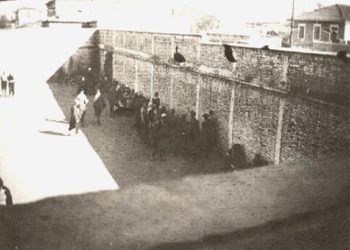By Timo Merkuri
Memorie.al / The name of Jusuf Gërvalla became known in Albania only after his murder on January 17, 1982 in Stuttgart, together with his brother (Bardhoshin) and another activist (Kadri Zeke). The news was officially given and caused a great stir among the people, also due to the fact that the Yugoslav UDB was directly accused of the murder. After this news, information flooded through unofficial channels, that: Jusuf Gërvalla was a young Kosovar, political activist, who was organizing something big for Kosovo and that before the murder, he had been in Tirana, where he had also met with the Leader. It was even whispered that; the reason for his murder, “after” being the fact, why he had met with the Leader, who had given him some directives, the realization of which would bring freedom to Kosovo. Treated in this way, the event was seen as proof of the authenticity of the teachings and orders of the country’s leadership, on the anti-Albanian activity of the secret services of the neighboring state, and was an “alarm bell for revolutionary vigilance”.
I – A little later, another piece of information circulated, according to which Jusuf Gërvalla often entered and left our country, where he met with the leadership and received directives and literature, this information supporting the theory that “Red Tirana” was the center of the world movement for freedom, while Jusuf Gërvalla was a politically engaged man, an “illegal” type, with a kurban in his belt, and nowhere was it mentioned that his “kurban” was a pen and a guitar.
Word once circulated that he was also a journalist for some central organs of the left-wing Kosovar movement in Prishtina, and since a photo of him with a guitar in his hand was released, the journalist was also labeled “singer”, but, without clarification, whether he was a singer of light music, or of any other genre. The rumored conjecture as a singer of epic songs was spoiled by the guitar in his hand, so I didn’t teach you much about that aspect.
Except in the meantime, the word had slipped out that this guy was also a poet, but since his poems were not appreciated (those who had seen them), in accordance with the line of socialist realism, the party instructors took the directive to clarify to the people that: he he only created the lyrics of the songs, which he sang with his friends, at picnics and dance evenings. As if everything was done so that Jusuf Gërvalla was not presented to the people as a poet, as if there was a hidden fear of his poetry.
Despite the official spirit of the time, the poets spoke quietly to each other, evaluating Jusuf Gërvalla, as a poet of the highest plane of Albanian poetry, with a modern poem, with a lyrical discourse in his poems, with the theme of longing, of love, pain, loneliness and that he was an inalienable voice in Albanian poetry.
In those years, I was working in Helshan of Kukës and in my services in Kukës, or on my way back to Fajza, my poet friends, I got hold of his first poems. I remember that I read it several times, but neither I spoke to the friends who gave it to me, nor did they speak to me, about the values of that poem. Even when I went to Sarandë with a permit, in the conversations with the creators from Sarandë, whenever the name of Jusuf Gërvalla was mentioned, as a poet, the conversation was covered by silence. It was time for silent co-conversation.
A friend of mine (A.M.) gave me some more poems of Yusuf. He silently gave them to me, I silently returned them after two days, after I had read and copied them. It will be the first time in the history of literature, that a poet comes silently to other poets and his readers, although it was a thunderous silence.
To be understood, we were silent, the entire Albanian intelligentsia and the people were silent, although the Party instructors always spoke at the meetings of the Front and the mass organizations, but their speech crashed into the mass silence, as a bat crashes into a rock when it comes out mistakenly out of the dark cave, into the light of day.
After a deep “silence”, for the “suicide” of the former prime minister of the country, in the middle of last December (1981), this intellectual silence was like the new snow, which occupies the snow of the previous year, creating an ice cream. It was a fearful cold.
II – I read the poems of Jusuf Gërvalla, which fell into my hands in Kukës and in Saranda, but I cannot say that I was amazed. It is more correct to tell you that, I was confused. I was confused by the style, metaphor and structure of the verses of these poems, which had a kind of illumination, inside them, that I had to focus on, to “see”.
Perhaps it is worth remembering that the introduction of the poetry of Kosovar authors to the Albanian reader, somewhere around the 80s, first with a poetic anthology and then with selected summaries of a number of well-known poets, was a shocking revelation., in the sky of Albanian poetry.
The poetry that was cultivated at that time in Albania resembled those small churches without windows, in which, lighting candles next to the icons, blurred their appearance, apart from the fact that it suffocated those present. In these small churches, only the voice of the priest and the deacon could be heard, when they sang the liturgy or read the gospel, and everyone else made the cross with a unanimous “Amen”!
Meanwhile, the entry into our country in the 80s of Kosovar poetry, with its metaphors and style, was like opening big windows and widening the gate to the “small churches”, allowing the penetration of light and air. fresh, which expanded the breathing and vision of Albanian poetry. Then we clearly saw the smoke-covered “icons” and the barren “rason” of the “priests”, then the real poetic “heresy” began.
III – While the name of Jusuf Gërvalla was being silenced and the propaganda was “silent”, suddenly, in a public demonstration, the leader of the party and the state took to the podium and held a little girl of about 10 years old, who gave him a bunch of carnations, brought from Germany.
(Jusuf Gërvalla’s family came illegally from Switzerland to Greece and entered Albania, through the Kakavia Border Point, on March 30, 1982. The command of the Kakavia Border Point had received an urgent phonogram from Tirana the day before, for protection and protection of “coming personalities” from Serbian snipers…!)
Immediately, the news spread that this girl, whose hair the leader of the Party and the state was stroking on the podium, was the daughter of Jusuf Gërvalla. No one asked, to recall, who this man was! We remembered his name as the name of a martyr or a saint, although physically unknown. After this information the voices, the people were electrified, burst into cheers and applause never seen before. It was the first public explosion, due to the name and memory of Jusuf Gërvalla.
(This little girl was Donika Gërvalla, who also appeared several times in the official concerts, playing as a flautist, but she would show her identity and personality in full in 1991, when, as a student of the Academy of Arts, she to be active in the Anti-Communist Movement and would participate in the hunger strike in the spring of that year).
Usually during the demonstrations of the beginning of May on the main boulevard of the capital, workers and peasants who paraded organized, in the squares, when they approached the tribune of the leadership, cheered for the Party and the leader, but the density of the demonstrations had created a routine of the tonality of the cheers. A special event was needed to increase this tone even more.
The presentation to the people of the daughter of the Kosovar martyr, Jusuf Gërvalla, by the leader of the Party and the state, implying that; the family of Jusuf Gërvalla had found protection and support in Albania, and the fact that this protection had been provided by the leader himself, evoked a positive feeling in the people.
This is how it is explained that, when this news spread, the applause and cheers in front of the tribune rose to an octave never heard before, the squares of people broke down and flocked to the tribune. The next frame, which followed, added to the mass of people and cheers in front of the stand.
Although the cheers qualified the Party and the leader, listening to the expressions among the demonstrators, with words full of compassion, about the “orphan” and the “deserted girl” made it clear that those cheers and applause were addressed to that child, who certainly did not understand nothing but rejoicing in the festive mass of people cheering and clapping.
In fact, people felt that bringing this little girl to the leader’s stand, in this manifestation, was an organized spectacle, with the aim of increasing the value of the party’s and the leader’s shares in the “political stock market”, but the people instinctively, presented his spirit of solidarity with the little orphan girl.
IV – News of the publication of the book of selected poems, “Suppressed pains”, of the poetic creativity of Jusuf Gërvalla, from the publishing house “Beqir Musliu”, Gjilan, and a little more that the selection of poems and the foreword were made by the writer and deep connoisseur of poetic art, researcher Anton Nikë Berisha, is a festive news. In the best, the best is chosen, from the best chooser, and of course, the reader is given an admirable poetic work.
I read the preface and the summary and I will certainly re-read it several times, inviting my creative friends and readers to enrich their poetic world with the magic of Jusuf Gërvalla’s verses, but what I want to say, specifically, is that: these quality publications, so much sought after and necessary, to be read, especially by creators and passionate readers of poetry, do not have to remain a monopoly of readers, residents of the territories where they are published.
Such quality books, like this one, should also reach readers and creators in Albania, just as quality books published in Albania should be in the hands of readers in Kosovo, and beyond. It is a literature, Albanian literature and the authors are Albanian poets, who should be widely known by the mass of readers.
It was not in vain that I spoke about the mystery created for non-literary reasons that surrounded the name of Jusuf Gërvalla, at the beginning of his recognition, by the reader in Albania. Even his novel “Rrotull”, published in Tirana in 1983, did not spread the “fog” because it was not properly promoted and distributed, also for non-literary reasons.
Therefore, friends and brothers, send us these books because they are also for us. Jusuf Gërvalla is also ours, because as he himself said: “The poet is not only of one three, or only of one people, the poet is of all […] The great poets of a people have been and are poets of great, for all peoples”. Memorie.al




